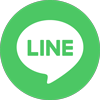
Faculty of International Studies
国際学部取り組み?プロジェクト紹介 詳細
更新日:2019年10月11日
【国際学部】リレーエッセイ2019(13)Lillian Swain "Testing, testing...."
"Testing, testing...."
Lillian Swain
TOEIC for the corporate world, and TOEFL and IELTS for the academic world, are only partial indicators of language proficiency, but are convenient to implement and widely recognized. The TOEIC test was developed by ETS, the same firm that developed the TOEFL (Test of English as a Foreign Language). The TOEIC is used mostly by corporations and is particularly popular in Japan, Korea and Taiwan, although it is growing in popularity in Europe and elsewhere. It has the advantage of being inexpensive, objective and fast. The TOEFL is used to test university students and covers a wider range of vocabulary than TOEIC. TOEFL has multiple-choice questions similar to TOEIC, but also tests writing and speaking ability. IELTS, put out by Cambridge University in the United Kingdom is similar to TOEFL in scope and method.
How accurate are these tests?
ETS-published studies show a close correlation between the TOEIC test results and results from alternative ways of evaluating English-speaking skills, such as interviews, but there are other independent studies which resulted in a lower level of correlation. ETS claims that TOEIC is a good predictor of writing and speaking skills, even though those are not tested in TOEIC. However, corporate language trainers in Japan and Korea have pointed out that TOEIC is not an accurate predictor of language skills within a corporate environment. People with similar TOEFL scores will often have quite different abilities to speak and write English. Similarly, studies of IELTS results and academic success show a low level of correlation between test scores and academic results. However, results in TOEIC, TOEFL, and other tests correlate closely to vocabulary levels, according to "Measuring Vocabulary Levels of English Textbooks and Tests" by Kiyomi Chujo. This correlation holds especially true if the vocabulary has been acquired through a sufficient volume of listening and reading, rather than just by cramming.
How useful are they?
These tests can be used as a minimum or qualifying standard when trying to evaluate the English language skills of a large number of people, such as employees in a large firm or potential students. The widespread requirement for these tests can serve as motivation for many people to study English, but not necessarily if the focus of English language study is on learning the techniques of taking the test. Especially for the higher level learner, less benefit is obtained by "studying for the test".
“Washback” is the impact of a test on teaching. The washback effects of large-scale testing programs on instruction are widely discussed. Tests contain what students must learn and therefore what must be taught, and are often perceived as exerting a conservative force which impedes progress (negative washback effect.) Test takers can be taught strategies to look for the patterns without having an understanding of the underlying grammar involved. In one study, two samples of students (English majors and non-majors) at a Japanese university were divided into three groups: 1) TOEIC Preparation, 2) Business English and 3) General (four-skills) English. The TOEIC preparatory group had a statistically significant gain on scores for the non-majors' reading component only. The authors conclude that TOEIC preparatory materials are of little benefit to most students, but might boost the reading score of students in a university-level general English course in Japan (Robb and Ercanbrack, "A Study of the Effect of Direct Test Preparation on the TOEIC Scores of Japanese University Students"). Since students tend to study for a test by reviewing past tests and concentrating on the types of language and test items that are known to be on the tests, it is clear that if a test can be prepared for, then it doesn’t measure general proficiency, but how well people have studied for the test.
So what is the best way to improve your score?
The most useful thing you can do to prepare for TOEIC, TOEFL, and IELTS is to (1) increase English reading and listening speed and (2) increase English vocabulary. Reading and listening speed is very important. For the listening questions, test-takers are usually only given one chance to hear each item. The written questions, as well as the reading passages, take time to read. You should read and listen to English regularly, thereby developing fluency and confidence. It is also important to increase your vocabulary. Do a lot of reading and listening on a wide variety of subjects, but especially on topics that are interesting. The more relevant and engaging the material, the longer you can concentrate, and you might enjoy the experience too.







